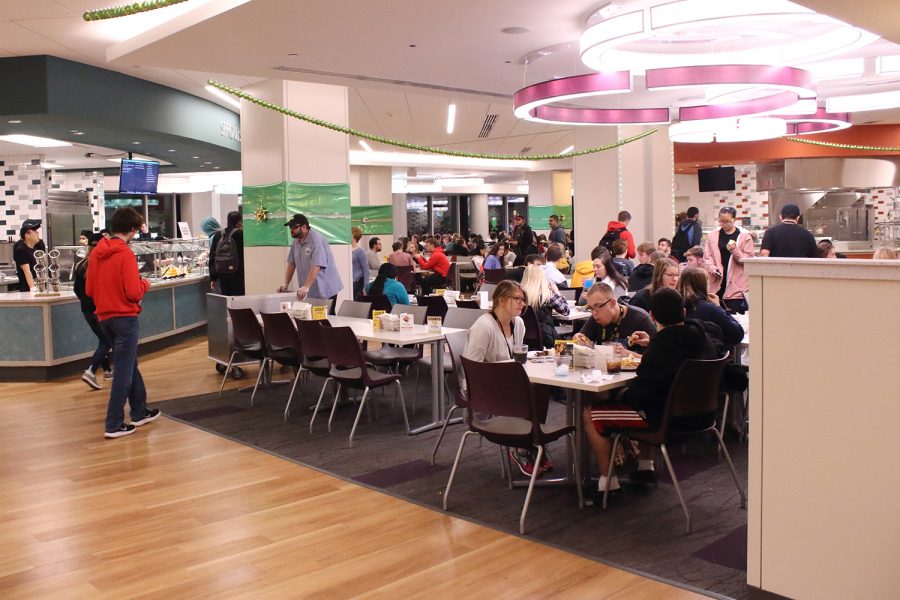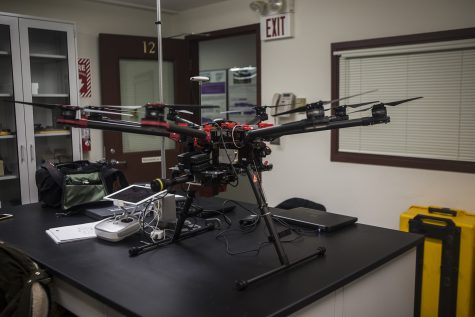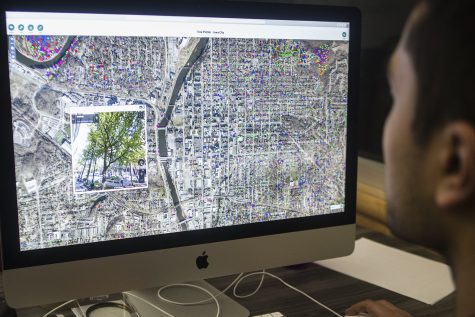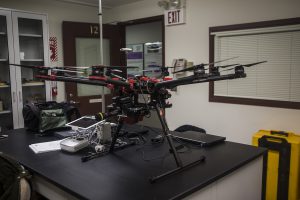Safe for now: Campus dining halls keep a close watch on food after FDA lapse in funding
Despite the recent FDA lapse in funding after the government shutdown, UI dining halls are continuing their safe food handling policies to keep students safe.
Catlett Dining Hall as seen on Tuesday, Nov. 28, 2017.
January 17, 2019
As the government shutdown continues, University of Iowa Housing & Dining is keeping an eye on the food it serves in the residence halls that may be at risk while the Food and Drug Administration continues to operate without being federally funded.
According to the U.S. Health and Human Services Department, FDA operations, such as activities necessary to address immediate threats to human safety, are able to continue to the extent permitted by law.
However, while the FDA says all of its work is important, only some of its work is permitted to continue while there is a lapse in funding, meaning foodborne illnesses could be on the rise in the near future.
For UI Dining Director Jill Irvin, the situation calls for caution but not urgent action in the dining halls.
Regardless of whether or not there is an inspector in a plant inspecting, we make sure that we follow of those rules about safe food handling to make sure that the food is safe for our consumers.
“All of our full-time staff are required to take a test to be certified in safe food handling,” she said. “Regardless of whether or not there is an inspector in a plant inspecting, we make sure that we follow of those rules about safe food handling to make sure that the food is safe for our consumers.”
Currently, FDA employees and inspectors are working without pay, according to the agency’s website. In addition to responding to emergency situations, the department also supports recalls of high-risk foods.
RELATED: Catlett Dining Hall closed on weekends due to low turnout and decreased enrollment
In a tweet on Monday, FDA Commissioner Scott Gottlieb said high-risk food inspections would restart as early as Jan. 15.
“This work is being done by an inspectorate that’s largely going unpaid. These men and women are the tip of the spear in our consumer-protection mission,” he wrote. “They’re the very frontline. And they’re on the job. The entire nation owes them gratitude. I’m inspired by their dedication.”
Irvin said two of the biggest areas of concern for her staff are products from produce companies and meatpacking facilities — where it is uncertain whether federally paid FDA inspectors are on the job or not.
Similar to the action taken during the national romaine-lettuce recall in the fall of 2018, Irvin said any nationally unsafe foods will be immediately removed from dining-hall menus.
“I think it’s very disconcerting that some of our food is no longer being inspected by the FDA,” UI freshman Camryn Norton said. “That being said, I think we as consumers need to trust that food companies are doing everything they can to keep our food safe in the FDA’s absence.”
Agencies that are not affected by the government shutdown include the Johnson County Health Department, Irvin said. Additionally, she said, the dining-hall staff will continue the principles of safe food handling as usual, even if federal inspectors are not on the job after funding runs out.
“If they aren’t working, then we are going to employ the same practices we always have,” she said.
Lisa James, assistant director of UI Student Health & Wellness, said in an email to The Daily Iowan that while the UI is not currently seeing any increase in gastrointestinal illnesses or reports of foodborne illnesses, officials are keeping an eye on the situation. Should any issues arise, James said, the university will listen to the state and local health departments regarding any action.
“So far, it’s been more of a watchful kind of situation for the big health picture on campus, with no increasing negative consequences that we are aware of,” she said.






















